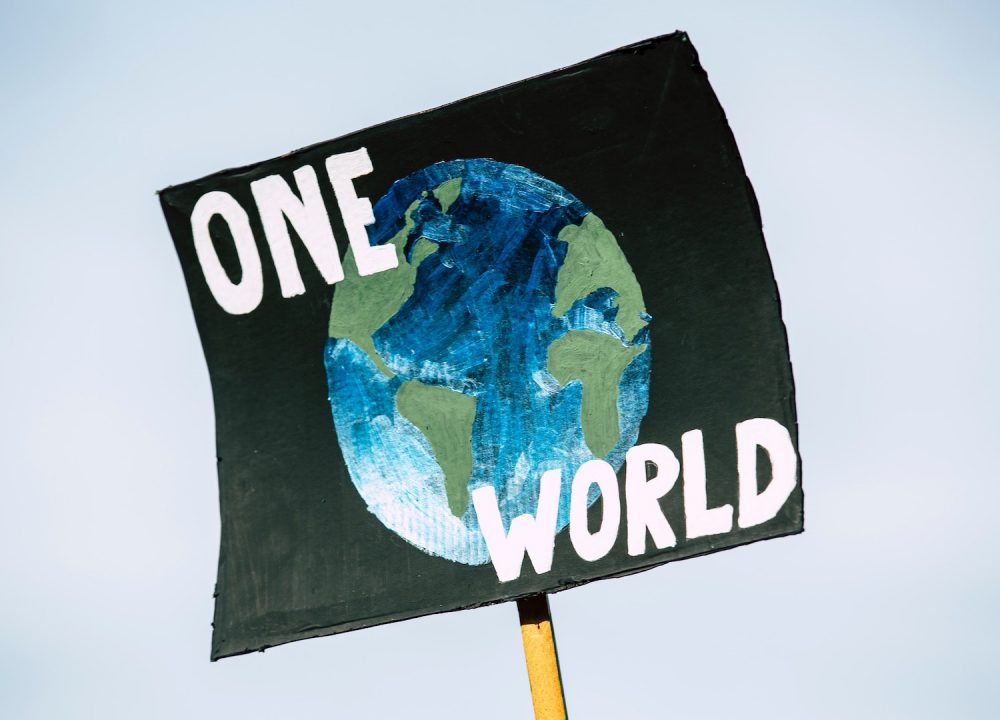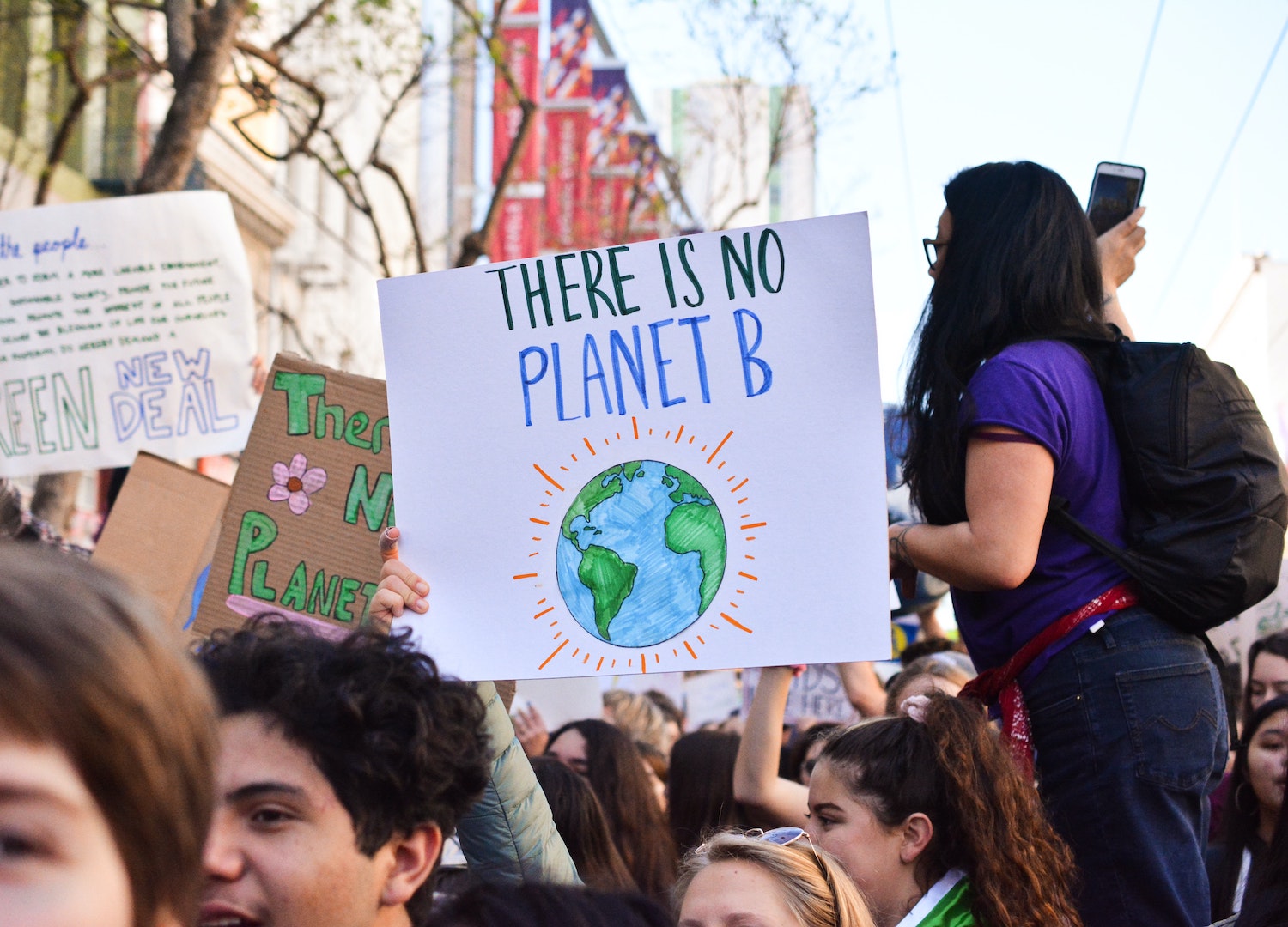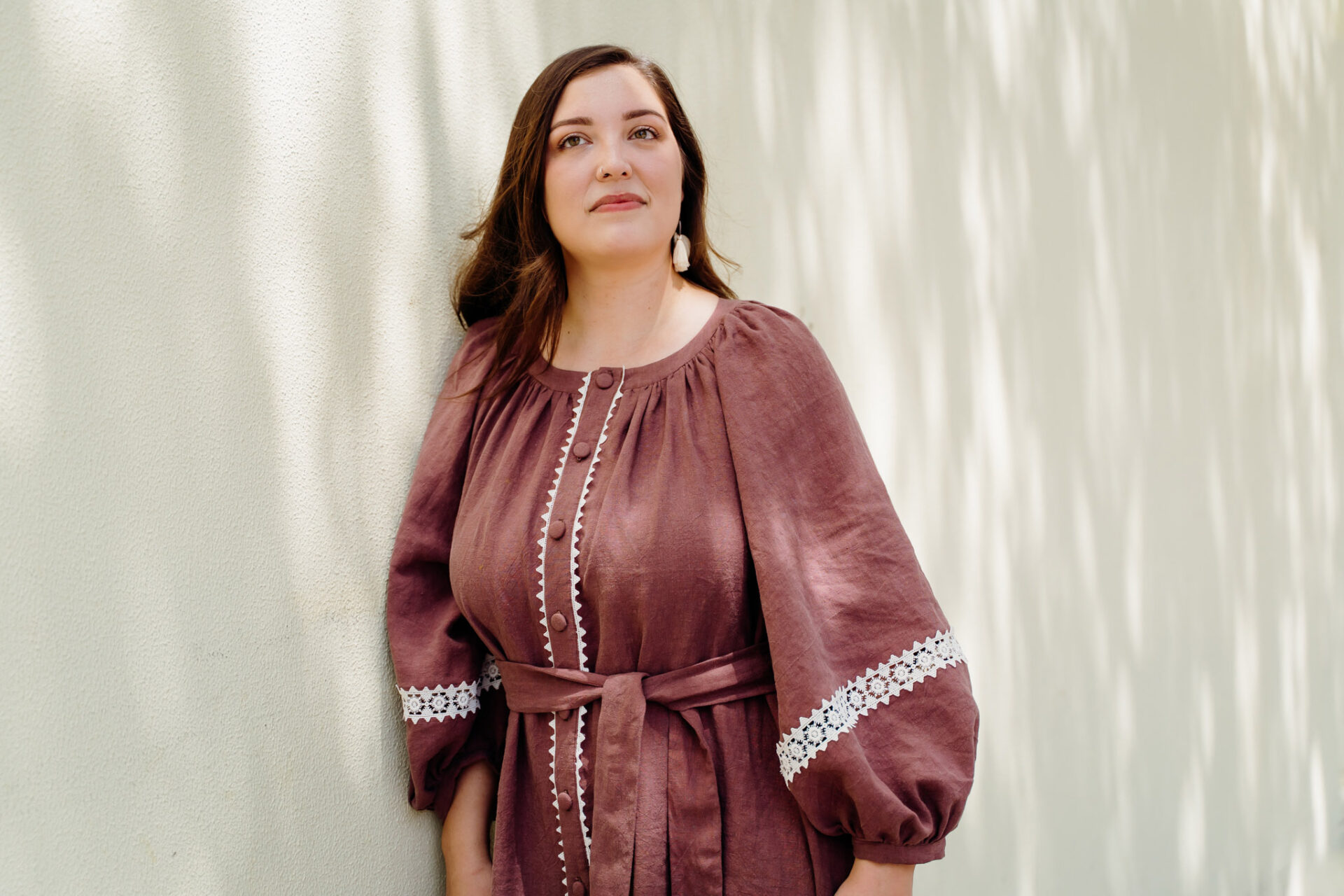Global Challenge, Global Solution: COP26 “Will Define Our Future Forever”

- Words by Peppermint
words VICKI TREADELL, UK HIGH COMMISSIONER TO AUSTRALIA photos VIA UNSPLASH
COP26 will bring world leaders, scientists, activists and business leaders together in an effort to curb global warming. In this exclusive op-ed for Peppermint, Vicki Treadell, UK High Commissioner to Australia, explains why it’s such a big deal.

In just a few days the world will come together to find solutions to the greatest challenge facing our existence. From 31 October, the UK, in partnership with Italy, will host the twenty-sixth United Nations Climate Change Conference in Glasgow.
This Conference of the Parties (known as COP26) brings together over 120 world leaders, including Australian Prime Minister Scott Morrison, who has recently announced Australia’s commitment to net zero by 2050. Over two weeks in Glasgow, there will be negotiations, debate and vital dialogue to reach the ambitious commitments necessary for meaningful climate action. It won’t be just talk.
There are four pillars we must target in order to turn rhetoric to reality. Mitigation identifies how the global community can reach net zero greenhouse gas emissions by mid-century and limit global warming to 1.5 degrees as set out by the Paris Agreement that all countries have signed up to. Adaptation explores methods to protect communities and natural habitats from the current and expected impacts of climate change. Mobilising finance supports developing nations to take climate action and ensures the private sector is playing a key role in the transition to net zero. And finally, in the spirit of the entire event, working together to deliver. Climate change is a problem for each and every one of us on this planet we call home. It will take collective global solutions to solve.
The UK Government is committed to ensuring an ambitious and inclusive summit that upholds the Paris agreement and keeps 1.5 degree global warming within reach. This 1.5 degree limit is a crucial figure, but the numbers mobilising to respond are heartening.
Every action, no matter how small it may appear, is a step in the right direction.
Over 70% of the global economy is covered by a net zero target set by governments and businesses. Through the UN-led Race to Zero initiative, over 4400 businesses, 750 cities, 35 regions, 700 higher education institutions and 170 of the biggest investors have committed to net zero targets with credible interim milestones and a clear pathway to achieve them. In Australia, net zero commitments from ASX200 listed companies have tripled in the last year to forty eight.
Every action, no matter how small it may appear, is a step in the right direction. Everything on the local, national or international scale that helps to limit climate change is an investment in the safety and prosperity of generations to come.
Across Australia, researchers are studying how we can save coral reef systems, new technologies are transforming carbon dioxide into building products and valuable materials, governments are investing billions into green hydrogen technology. It’s innovative, exciting and inspiring, and it’s exactly the sort of necessary change that will future proof economies and save lives.
Taking effective action also relies on a recognition of the existing inequalities exacerbated by the impacts of climate change for individuals and communities. We know 75% of people displaced by natural disasters are women and children and they are more likely than men to die during climate-related disasters.
Diverse communities should be seen as agents of change and their knowledge and leadership is necessary to deliver effective local solutions.
An intersectional approach includes but is not limited to, those living in poverty, women and girls, people with disabilities, youth, Indigenous peoples and marginalised groups, particularly those facing multiple exclusions based on their characteristics.
Equally, diverse communities should be seen as agents of change and their knowledge and leadership is necessary to deliver effective local solutions. Indigenous peoples, as stewards of 80% of the world’s remaining biodiversity, have unique knowledge and will be integral to tackling climate change.
We must listen to Elders, the wisdom they have to share, and we must also respect the voice of young people for the future hopes they hold. Recently the Youth4Pacific pre-COP26 gathering brought together more than 600 young people from across the Pacific. Their declaration called for the voice of youth to be heard; the importance of rights and justice in the climate sphere; the need to bring together traditional approaches with scientific expertise; and about the urgency of mitigation action and a switch from extractive to regenerative economies. As so often, the youth will be unfairly affected by actions of their forebears, yet will be vital in making things right.

We must remain thoughtful of the intersectionality of climate action and its effects.
We must remember to collaborate, to be visionary and be inspired by the prospects of a net zero future.
COP26 is a moment in time, but it’s one that will define our future forever.
WANT MORE CLIMATE CONTENT? RIGHT THIS WAY
JOIN OUR MAILING LIST
Brighten up your inbox with our not-too-frequent emails featuring Peppermint-related news, events, competitions and more!
explore
More articles
Look, I don’t want to make anyone panic but IT’S DECEMBER!!! If you’re planning to give homemade gifts, you’re going to have to act fast. …
Hang out with us on Instagram
🌻 The Paddington 🌻
This is a much-loved staple, created for Issue 50 in 2021. We love seeing the #PeppermintPaddingtonTop continually popping up in our feeds!
How stunning is our model Elon MelaninGoddessEfon – she told us it was one of the first times she had been asked to come to a shoot with her natural hair. 🌻
We worked with South African patternmaker Sarah Steenkamp of @FrenchNavyNow_ to create this wardrobe essential – the perfect puff-sleeve blouse. Raglan sleeves make it the ultimate beginner sew, plus the gorgeous back buttons let you add your own personal twist.
Pattern via the link in bio! 🪡
Photos: @KelleySheenan
Fabric: @Spoonflower
Model: MelaninGoddessEfon

“In the 1940’s, Norwegians made and wore red pointed hats with a tassel as a form of visual protest against Nazi occupation of their country. Within two years, the Nazis made these protest hats illegal and punishable by law to wear, make, or distribute. As purveyors of traditional craft, we felt it appropriate to revisit this design.”
Crafters have often been at the heart of many protest movements, often serving as a powerful means of political expression. @NeedleAndSkein, a yarn store in Minnesota, are helping to mobilise the craftivists of the world with a ‘Melt The Ice’ knitting pattern created by @Yarn_Cult (with a crochet pattern too), as a way of peaceful protest.
The proceeds from the $5 pattern will go to local immigrant aid organisations – or you can donate without buying the pattern.
Raise those needles, folks – art and craft can change the world. 🧶
Link in bio for the pattern.
Images: @Gather_Fiber @NeedleAndSkein @a2ina2 @KyraGiggles Sandi.204 @WhatTracyMakes AllieKnitsAway Auntabwi2
#MeltTheIce #Craftivism #Knitting #CraftForChange

TWO WEEKS TO GO! 🤩
"The most important shift is moving from volume-led buying to value-led curation – choosing fewer, better products with strong ethics, considered production and meaningful stories. Retailers have real influence here: what you buy signals what you stand for. At Life Instyle, this means using the event to discover and invest in small-scale, planet-considerate brands that align with your values and your customer’s conscience. Consumers don’t need more things; they need better things, and retailers play a key role in selecting, contextualising, and championing why those products matter."
Only two more weeks until @Life_Instyle – Australia`s leading boutique retail trade show. If you own a store, don`t miss this event! Connect with designers, source exquisite – and mindful – products, and see firsthand why this is Australia’s go-to trade show for creatives and retailers alike. And it`s free! ✨️
Life Instyle – Sydney/Eora Country
14-17 February 2026
ICC, Darling Harbour
Photos: @Samsette
#LifeInstyle #SustainableShopping #SustainableShop #RetailTradeEvent

Calling all sewists! 📞
Have you made the Peppermint Waratah Wrap Dress yet? Call *1800 I NEED THIS NOW to get making!
This gorgeous green number was modelled (and made) by the fabulous Lisa of @Tricky.Pockets 🙌🏼
If you need a nudge, @ePrintOnline are offering Peppermint sewists a huge 🌟 30% off ALL A0 printing 🌟 when you purchase the Special Release Waratah Wrap Dress pattern – how generous is that?!
Head to the link in bio now 📞
*Not a real number in case that wasn`t clear 😂
#PeppermintWaratahWrapDress #PeppermintPatterns #SewingPattern #WrapDress #WrapDressPattern

8 Things to Know About January 26 - from @ClothingTheGaps:
Before you celebrate, take the time to learn the truth. January 26 is not a day of unity it’s a Day of Mourning and Survival for Aboriginal and Torres Strait Islander peoples.
It marks the beginning of invasion, dispossession, and ongoing colonial violence. It’s time for truth-telling, not whitewashed history.
Stand in solidarity. Learn. Reflect. Act.
✊🏽 Blog written by Yorta Yorta woman Taneshia Atkinson.
🔗 Link in bio of @ClothingTheGaps to read the full blog
#ChangeTheDate #InvasionDay #SurvivalDay #AlwaysWasAlwaysWillBe #ClothingTheGaps

As the world careens towards AI seeping into our feeds, finds and even friend-zones, it`s becoming increasingly hard to ignore.
We just wanted to say that here at Peppermint, we are choosing to not print or publish AI-generated art, photos, words, videos or content.
Merriam-Webster’s human editors chose `slop` as the 2025 Word of the Year – they define it as “digital content of low quality that is produced usually in quantity by means of artificial intelligence.” The problem is, as AI increases in quality, it`s becoming more and more difficult to ascertain what`s real and what`s not.
Let`s be clear here, AI absolutely has its place in science, in climate modelling, in medical breakthroughs, in many places... but not in replacing the work of artists, writers and creatives.
Can we guarantee that everything we publish is AI-free? Honestly, not really. We know we are not using it to create content, but we are also relying on the artists, makers and contributors we work with, as well as our advertisers, to supply imagery, artwork or words created by humans. AI features are also creeping into programs and apps too, making it difficult to navigate. But we will do our best to avoid it and make a stand for the artists and creatives who have had their work stolen and used to train AI machines, and those who are now losing work as they are replaced by this energy-sapping, environment-destroying magic wand.
Could using it help our productivity and bottom line? Sure. And as a small business in a difficult landscape, that`s a hard one to turn down. We know other publishers who use AI to write stories, create recipes, produce photo shoots... but this one is important to us.
`Touch grass` was also a Merriam-Webster Word of the Year. We`ll happily stick with that as a theme, thanks very much. 🌿

















